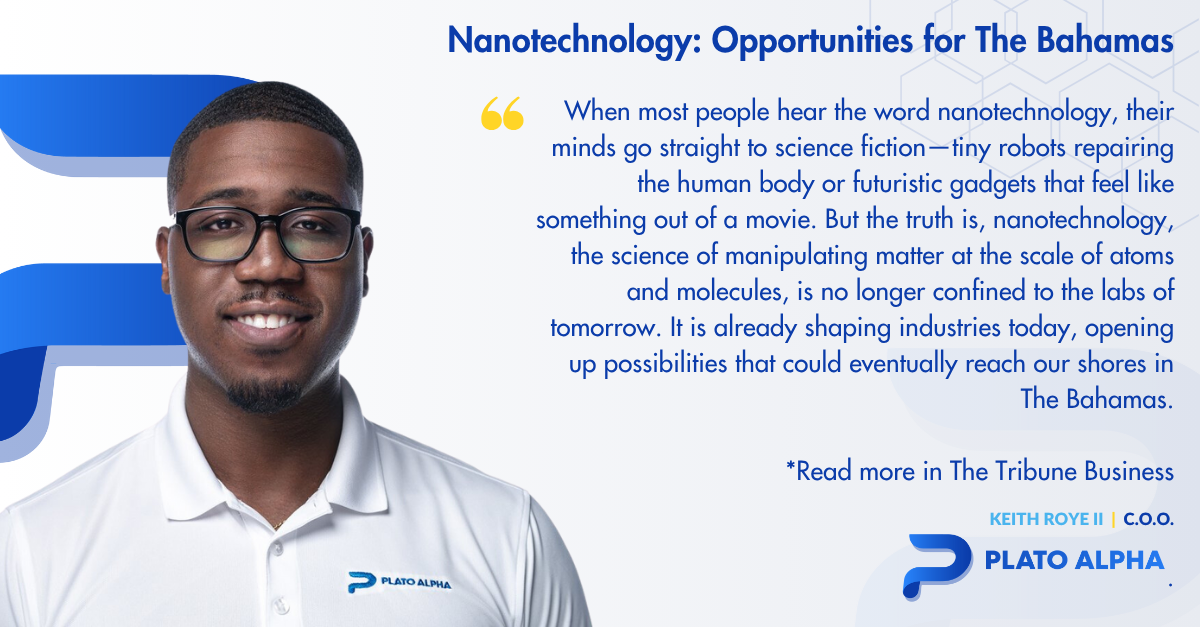
Nanotechnology: Opportunities for The Bahamas
When many people hear the word nanotechnology, they think of futuristic ideas such as microscopic machines repairing the human body or devices straight out of science fiction. In reality, nanotechnology is the science of working with matter at the atomic and molecular level, and it is already influencing major industries around the world.
From healthcare and energy to construction and agriculture, nanotechnology is enabling solutions that were once unimaginable. Materials are being engineered to make solar panels more efficient, buildings more durable, fabrics resistant to stains, and medicines that target only diseased cells while leaving healthy ones untouched. These developments are not only impressive innovations, they represent industries worth billions of dollars that continue to expand every year.
Consider the energy sector. First Solar, a leading global solar company, uses nanotechnology to produce thin-film solar cells that are lighter, stronger, and more efficient. For The Bahamas, this kind of technology could make renewable energy more practical for homes, resorts, and businesses.
In healthcare, Japanese company NanoCarrier is pioneering nanoparticle-based drug delivery systems that can target cancer cells with precision. This type of advancement has the potential to enhance medical tourism in The Bahamas, attracting patients who seek access to advanced treatments.
The construction and hospitality sectors are also benefiting from nanotech innovations. Self-cleaning coatings, modeled after the lotus leaf’s ability to repel water, are already used in Europe to keep buildings cleaner for longer. Resorts and hotels in The Bahamas could adopt these coatings to reduce costly repainting and maintenance.
Even agriculture and food security are being transformed. Apeel Sciences, for example, applies nanotechnology to extend the shelf life of fresh produce. This could reduce food waste in The Bahamas, where imports are high and spoilage during shipping is a frequent challenge. Longer-lasting fruits and vegetables would not only cut costs but could also support local farmers in reaching new export markets.
Although The Bahamas is not yet a hub for high-tech research, the country is actively engaged in discussions on renewable energy, sustainable development, and economic diversification. Nanotechnology connects directly with these goals. It could help lower fuel dependency, support advanced healthcare offerings, reduce resort operating costs, and strengthen food supply chains.
For these opportunities to become reality, awareness, education, and partnerships will be essential. The Bahamas will need to work with universities, research institutions, and private companies abroad, while also building local expertise to manage these technologies. Without this preparation, the country risks remaining a consumer of innovation rather than an active participant in shaping it.
Nanotechnology may be invisible to the eye, but its potential impact is large. By taking steps to explore and integrate nanotech into key sectors, The Bahamas could reduce costs, improve resilience, and create new opportunities for growth. The question is whether we will be ready to take advantage of these possibilities as they emerge.
